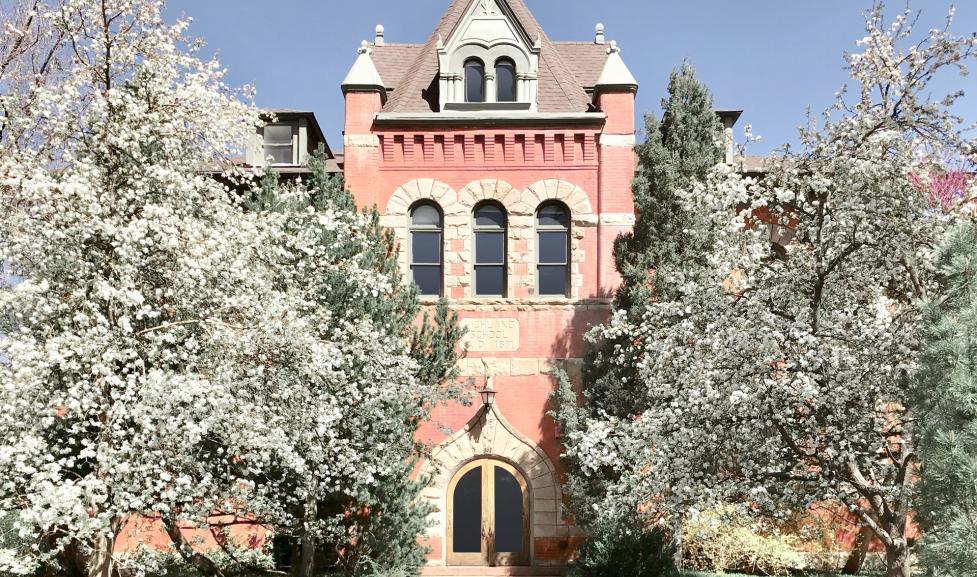Is My Old House Protected?
Not all properties in the City of Boulder are protected, even if they are very old. The age of the building doesn't automatically give it historic preservation designation.
To find out if your property is a landmark or in a historic district, refer to the Map of Historic Districts & Landmarks.
All exterior changes to a property designated as an individual landmark or located within a historic district require review and approval through a Landmark Alteration Certificate (LAC).
If your property is older than 50 years old but NOT designated as an individual landmark or in a historic district, your project may need to be reviewed under Historic Preservation Demolition Review criteria. Refer to Historic Preservation Demolition Review for details.
What Are The Benefits of Landmark Designation?
As a way to encourage landmark designation of the city's eligible historic resources, the city offers a variety of incentives to property owners.
Tax Credits
- Federal Investment Tax Credits are available for approved renovations to properties listed on the National Register of Historic Places that are used for commercial purposes, including rental housing.
- State Income Tax Credits are available for approved renovations to local landmarks and “contributing” buildings in local historic districts. Twenty percent of rehabilitation costs can applied as a direct credit against state income tax owed, up to a maximum of $50,000 per property. The credit can be spread out over a 10 year period if desired.
- A waiver of city sales tax on construction materials is available when applying for a building permit, if at least 30 percent of the value of materials is for the building's exterior. Section 3-2-6(w)
Possible zoning variances or exemptions allowed in Title 9 for locally designated properties:
- Setback encroachment for front porches, Section 9-7-4(d);
- Building Height, Appurtenances, Section 9-7-7(b), B.R.C, 1981;
- Accessory Buildings in Residential Zones, Section 9-7-8(a);
- Side Yard Bulk Plane, Section 9-7-9(d);
- Side Yard Wall Articulation, Section 9-7-10(d)
- Maximum Building Coverage, Section 9-7-11(d)
- Floor Area Ratio Requirements, Section 9-8-2
- Solar Access, Section 9-9-17(f)(6)(D)
- Greenpoints - Alteration or Modification, Section 10-7.5-5(a)(5)
- Support for a variance from the Board of Zoning Adjustment for landmarked structures, Section 9-2-3(h)(4), B.R.C., 1981.
- Floodplain requirements for substantial improvements, Section 9-9-6(a)(16);
- Coordination with the Chief Building Official for waivers from certain provisions of the International Building Code (i.e. lower railing heights may be permitted if historically compatible and safe).
Grant Eligibility
- Eligibility for the Colorado State Historical Fund, a grants program established by the passage of the constitutional amendment legalizing gambling in certain Colorado communities. Grants are available for projects in the following categories: acquisition and development (must be a local landmark or on the State or National Register), education projects, and survey and planning projects. Persons in the private sector must apply through a municipality or county.
Recognition
- Dedication of a bronze plaque commemorating the establishment of an individual landmark status.
City staff assistance
- City staff is available to assist applicants through the development review and building permit processes. The Landmarks Design Review Committee meets on a weekly basis to help expedite this review.
How Do I Nominate A Landmark?
What Is A Structure of Merit?
In 1987, the Landmarks Board established the Structure of Merit program to recognize properties possessing historic, architectural, or aesthetic merit. It is an honorary recognition that does not carry the protection or design review requirement of local landmark designation. Buildings and sites listed on either the National Register of Historic Places or the Colorado State Register of Historic Properties are automatically added to the Structure of Merit program. Currently, 75 properties are recognized as Structures of Merit.
Official Listings of Historic Places
Colorado State Register of Historic Properties
The Colorado State Register of Historic Properties is a listing of the state’s significant cultural resources worthy of preservation for the future education and enjoyment of Colorado’s residents and visitors. Properties listed in the Colorado State Register include individual buildings, structures, objects, districts and historic and archaeological sites. The Colorado State Register program is administered by the Office of Archaeology and Historic Preservation within History Colorado. History Colorado maintains an official list of all properties included in the Colorado State Register. Properties listed in the National Register of Historic Places are automatically placed in the Colorado State Register. They may also be nominated separately to the Colorado State Register without inclusion in the National Register.
History Colorado provides an overview of Properties in Boulder County listed on the Colorado State Register of Historic Places
National Register of Historic Places
The National Register of Historic Places is the official list of the Nation's historic places worthy of preservation. Authorized by the National Historic Preservation Act of 1966, the National Park Service's National Register of Historic Places is part of a national program to coordinate and support public and private efforts to identify, evaluate, and protect America's historic and archaeological resources. The National Register is administered by the National Park Service, which is part of the U.S. Department of the Interior.
Properties in Boulder listed on the National Register include the Arnett-Fullen House (646 Pearl St.), Highland School (885 Arapahoe), the Carnegie Library (1125 Pine St.), the Boulderado Hotel (2115 13th St.) and Mt. St. Gertrude's Academy (970 Aurora Ave.).The Downtown Boulder Historic District (Pearl St.) was listed on the National Register in 1978.
The Colorado Chautauqua is also designated as a National Historic Landmark, one of only 25 in Colorado.
